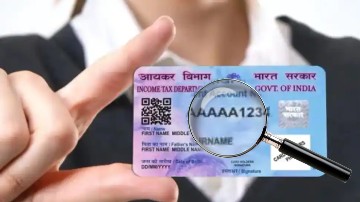A Bengaluru woman has fallen victim to a sophisticated lottery scam, losing more than Rs 18 lakh. This incident underscores the increasing prevalence of such frauds and highlights the importance of vigilance to avoid similar pitfalls.
The Unfolding of the Scam
The victim, Sanjana, a 45-year-old resident of Annapurneshwari Nagar, received an envelope on January 28, 2024. It appeared to be from an e-commerce platform and contained a scratch card along with instructions. Upon scratching the card, Sanjana discovered she had supposedly won Rs 15.51 lakh.
Following the instructions, Sanjana shared photos of the letter, scratch card, envelope, and her ID card with the fraudsters for verification. The scammers then claimed she needed to pay a 30% tax on her winnings due to the restrictions on lotteries in Karnataka.
Over the next few months, Sanjana transferred a total of Rs 18,40,168 to the scammers via RTGS. After receiving the funds, the scammers disappeared, leaving Sanjana with nothing. Realizing the deception, Sanjana reported the incident to the cybercrime authorities. A case has been registered under the Information Technology Act and the Indian Penal Code.
What is a Scratch Card Scam?
Scratch card scams prey on people's hopes for easy money. Fraudsters send unsolicited scratch cards, claiming the recipient has won a significant prize. To claim the prize, victims are asked to pay fees or provide personal information. Once the scammers have what they want, they disappear, leaving the victim empty-handed.
How to Protect Yourself from Lottery Scams
To avoid falling victim to these scams, consider the following tips:
-
Be Cautious of Unsolicited Offers: Treat unexpected prize notifications with suspicion, especially if you didn’t enter any contest.
-
Verify Authenticity: Always check the legitimacy of the promotion with the official organization or company. Use verified contact details, not those provided in the suspicious communication.
-
Protect Personal Information: Never share personal details, such as ID cards or banking information, with unknown parties.
-
Research Thoroughly: Look up the organization or promotion online. Check for reviews or reports of similar scams.
-
Consult Authorities: When in doubt, consult local authorities or cybercrime units before making any financial transactions.
Sanjana’s experience is a cautionary tale about the dangers of lottery scams. As scammers continue to use sophisticated methods, it is essential to remain informed and cautious. By following the recommended precautions, you can safeguard yourself from becoming a victim of such fraudulent schemes.
Stay updated with our tech news section for more insights on online safety and cybersecurity tips.

.webp)



.webp)
.webp)
.webp)